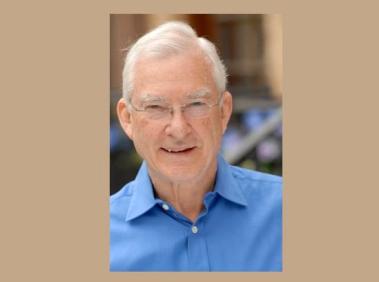AOL; Free at Last, Free at Last. AOL Is Free Again at Last - Charlie Warner - MediaBizBlogger

The day Time Warner announced it was spinning off AOL, a former colleague of mine at AOL (I was a VP there from 1998 to 2002) Twittered, "After nearly a decade of pain and confusion AOL is free again." The tweet expressed the joy of many former and current AOLers over finally being free from the destructive corporate oversight of Time Warner.
Time Warner CEO Jeff Bewkes, in an appearance at a Sanford Bernstein Conference in New York, was upbeat on AOL's prospects under new CEO Tim Armstrong, who he hired to replace the inept Randy Falco. "Tim is really very good, and we think the team is going to be very successful. AOL's working very well and has a renewed sense of optimism and energy. All of which doesn't change the fact that Time Warner was crazy to do the merger with AOL back in 2001," Bewkes reportedly said.
Bewkes' statement about the "crazy" merger is a revealing insight into the dark underside of what most business observers consider to be the most disastrous corporate merger in history.
In an e-mail earlier this year, the same former colleague who Twittered about AOL being free again, pulled back the curtain on the dark underside of the merger. He wrote that Time Warner had destroyed AOL on purpose.
At the time it was almost impossible for me to contemplate the notion that Time Warner would purposely destroy AOL. Why on earth would rational executives do that?
But as I thought about it, I realized what a profound insight this was. We have learned from Tversky and Kahneman, and from behavioral economists who built on their research, that people do not make rational decisions. The notion of "economic man" – a rational, self-interested decision maker – is false. We make decisions based on emotions, or what John Maynard Keynes called animal spirits, without any understanding of the effects of randomness on events.
No rational executive would make the decisions Time Warner top management made in hiring Jon Miller and Randy Falco and allowing them to make a series of disastrous mistakes. These were not rational decisions; they were emotional.
The emotions involved were primarily rage and revenge. Those emotions were probably under the surface – no one could consciously admit them. Nevertheless, the rage of the Time Warner people at being bought by AOL was barely controlled at the time – yes, AOL boughtTW; there's really no such thing as a merger of equals. The rage came about because AOL was considered a lucky upstart and the AOL executives who came to Time Warner were inevitably seen as arrogant, brash carpetbaggers, even, over time, as terrorists.
When the AOL Time Warner stock plummeted after the merger, Time Warner people saw the value of their stock and their nest eggs tank, which added to their rage. They probably said to themselves, "I hate these people and I'm not as rich as I used to be. I'll show them." The first indication of this rage and revenge was the failure of Time Warner Cable to cooperate with AOL in putting together a meaningful broadband access package for AOL members. It was passive, vengeful resistance and the beginning of the long decline.
AOL bought Time Warner in January, 2000. We know what happened in September of 2001 and in March of 2003, which led to the moral lapses in Abu Ghraib. It was a time when torture was seen as a legitimate response to rage and a desire for revenge, and that mentality prevailed in the White House and in some executive suites.
Rage at Time Warner percolated under the surface and bubbled up as emotional but highly destructive decisions – firing the popular Mike Kelly, hiring Falco and Grant, and firing Curt Vibranz. Time Warner tortured AOL and destroyed morale, forced good people to leave, and rewarded and promoted people based on politics instead of performance, which is typical of Time Warner.
Time Warner executives, especially Jeff Bewkes, destroyed AOL on purpose because of rage and the desire for revenge. When they had wiped out over $150 billion in value, they finally said, "We showed them, didn't we," and hired the right person to clean up after the train wreck they caused.
Tim Armstrong has the clean-up job, but I'm confident that he took it only on the condition that AOL would be spun off and away from the Evil Empire that is ruled by the Dark Side of human nature – rage, revenge, fear, and political intrigue.
Yes, AOL is free again, but so, unfairly, are the people who tortured it.
Until he retired in 2002, Charlie Warner was Vice President of AOL's Interactive Marketing division. Before joining AOL, he was the Goldenson Endowed Professor at the Missouri Journalism School where he taught media management and sales, and he created and ran the annual Management Seminar for News Executives. Charlie can be contacted at charleshwarner@gmail.com.
The opinions expressed by the author are his own and do not represent JackMyers.com or its employees.

